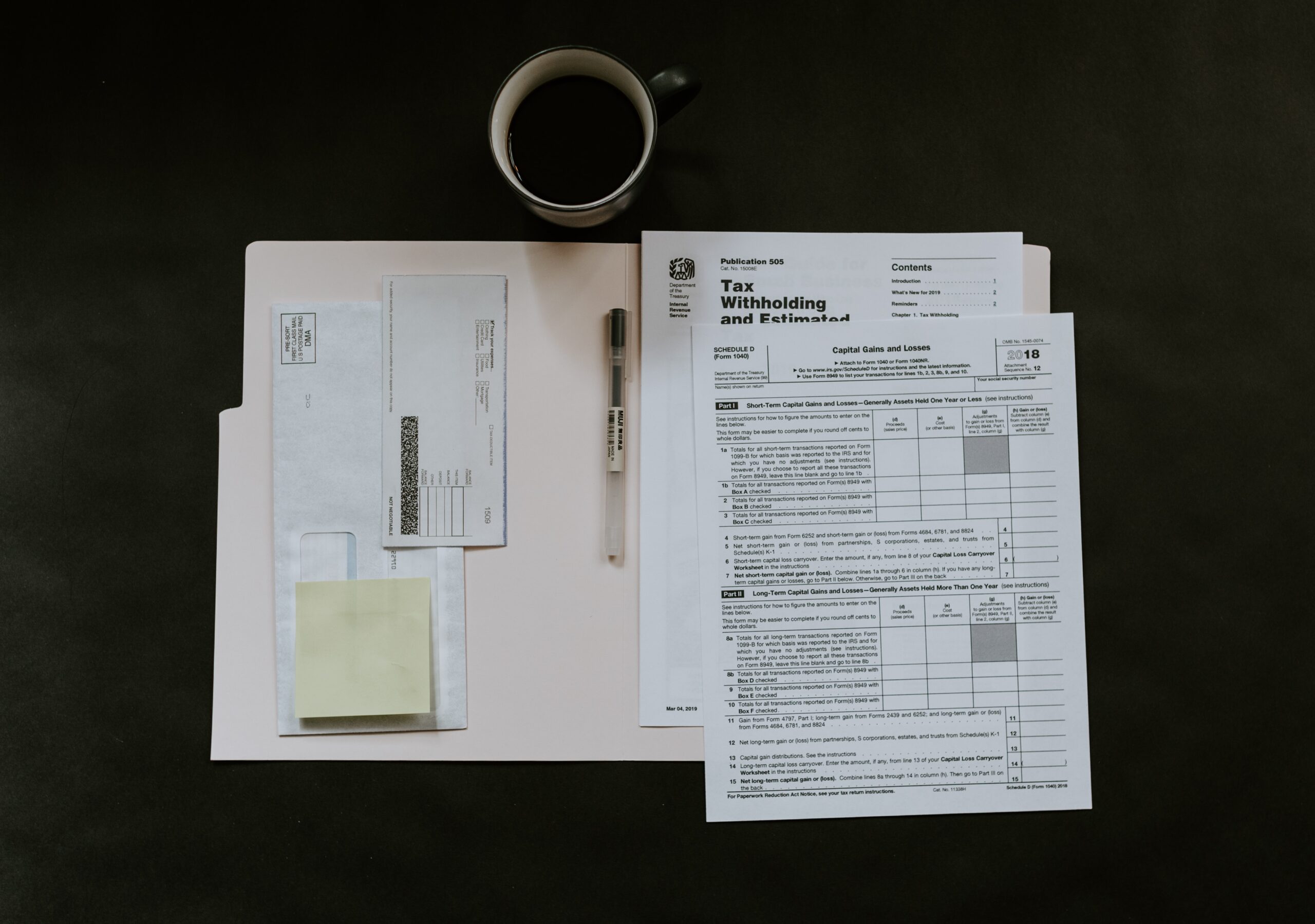Pennsylvania Inheritance Tax: 5 Simple Ways to Minimize the Tax Burden

A common question in Estate Planning is “How is my property going to be taxed when I pass?” Chances are that when you die, you aren’t going to be triggering any federal estate taxes – for 2022, the federal estate tax exemption is $12.06 million per person. However, if you live in Pennsylvania, then you do have to worry about the Pennsylvania Inheritance Tax.
The Pennsylvania Inheritance Tax
While the majority of states do not impose taxes on estates, Pennsylvania has an Inheritance Tax, which is effectively the same. You can reach the Department of Revenue’s page on the Pennsylvania Inheritance Tax here. Technically, the Pennsylvania Inheritance Tax is a tax on the right of a beneficiary to inherit property. And it doesn’t matter whether you die with a Will or intestate, the state is still going to take it’s cut.
The tax is imposed on any property being passed to another by virtue of death, whether or not that property goes through probate. For example, if you are the beneficiary of someone’s IRA, you are responsible to pay the inheritance tax on the full value of that IRA (whether or not you take the money out immediately or not). When it’s time to create your Will, you should be thinking about what the tax consequences to the beneficiaries will be.
The Rate of the Pennsylvania Inheritance Tax depends upon the beneficiary’s relationship to the decedent.
- Spouses and minor children pay no inheritance tax. Charities, government institutions, and other exempt institutions also pay no inheritance tax.
- Direct Descendants and Lineal Heirs (Children, Grandchildren, Parents, Grandparents, etc.) pay 4.5% in inheritance tax.
- Siblings pay 12% in inheritance tax.
- Others pay 15% inheritance tax.
While your beneficiaries will likely be hit with some amount of Inheritance Tax to pay, there are different ways to minimize this burden. When you are creating your Estate Plan, your attorney should be informing you of the different methods you can use to lower the tax.
1. Gifting Your Assets Away
If you don’t actually own an asset at your death, then the state can’t tax it – usually. As long as you plan far enough in advance, you can give away your assets before you pass so that your beneficiaries don’t need to pay the tax. If you know that you’re going to be passing some of your assets to someone anyways – like your adult children – it can be worth it to begin gifting those assets to them ahead of time.
However, any gifts made within the 12 months prior to your passing are pulled back into your estate for the purpose of Inheritance Tax calculation, minus a $3000 exemption for each recipient. Therefore, you can’t just give away everything you own while on your deathbed in order to avoid the tax.
2. Jointly Owning Property
When you own property jointly, only half of the property you own is considered yours for the purposes of the Inheritance Tax (or less, if you jointly own it with multiple people). For example, if you have a bank account with $100,000 in it, and pass it onto your child, that child would owe a tax of $4,500 ($100,000 x 4.5% tax). However, if you add your child to the account, the tax would only be $2,250 ($100,000 / 2 (number of owners) x 4.5% tax). And if you add two children, the tax is only $1,500 ($100,000 / 3 (number of owners) x 4.5% tax).
But you have to be careful when you’re turning property into jointly owned property! First, jointly owned property is a non-probate asset – which means it passes outside of your Will. If you aren’t careful, you can accidentally frustrate your own intentions by accidentally leaving too much of your estate to one beneficiary, and not enough to another. Second, you may impose a much higher tax burden by losing the step-up basis that results when you pass capital assets to beneficiaries through inheritance. You don’t want to have your attempt to minimize your tax burden actually impose a much higher tax rate.
3. Converting Assets into Exempt Property
There are a few types of property which is exempt from the Pennsylvania Inheritance Tax. The lump-sum death payment from the Social Security Administration or Veterans’ Administration are not subject to the Pennsylvania Inheritance Tax. Most importantly, the proceeds of a life insurance policy on the life of the deceased are not subject to the Pennsylvania Inheritance Tax.
If you have life insurance, it doesn’t matter who the beneficiary on the policy is – they won’t have to pay any inheritance tax on that payout. If you have beneficiaries who would be taxed at 15%, it may be worth using your assets to purchase a life insurance policy which pays out to them, rather than passing those assets directly on to them.
You need to make careful calculations to determine whether purchasing a life insurance policy now will save money when the inheritance tax comes around. For example, if a widow inherits her husband’s IRA worth $1,000,000, no Inheritance Tax is due because it passes to his spouse. However, when the widows dies those assets will incur inheritance tax. But if she has enough income to not require the IRA income, we have a better option.
Instead, the widow takes out the minimum annual distribution each year (in this example, $40,000) and pays the income tax according to her tax bracket (22% in this example, or $8,800). She then uses part of the remaining $31,200 to pay the annual premium on a $1,000,000 life insurance policy that names her children as the beneficiaries.
At her death, her children receive $1,000,000 free of inheritance tax and income tax, plus whatever is left in the IRA at the time of her death, subject to inheritance tax and income tax. The widow did not diminish her estate at all, as she used the IRA funds to pay for a life insurance policy worth the same amount. She also got use out of the annual distributions she took in excess of her life insurance premium.
4. Creating an Irrevocable Trust
If you create an Irrevocable Trust, then the assets in that trust (provided it is properly structured) are no longer considered yours and won’t incur any inheritance tax. This is technically the same as gifting assets away, but instead of giving them to other people, you give them to a Trust with the terms you created. By carefully drafting the terms of the Trust, you can maintain a relatively high control of your assets, remove them from your estate for the purpose of inheritance tax, and still have any capital assets receive a step-up in basis upon your passing.
However, Irrevocable Trusts are not without their downsides. First, maintaining a trust requires time and energy. Not only must you re-title your assets into the trust (which itself will incur certain costs, maybe even up to having to refinance any real property), but the trust also has to pay income tax each year. You will have to choose a trustee to control the assets – there are corporations who will act as trustee, but they will require a yearly fee to maintain the trust.
If you want to get the assets out of your trust, you will at best be dependent on the Trusts beneficiaries being cooperative. At worst, you simply won’t be able to take the assets out at all. Finally, if the Trust is not properly drafted, you could not actually gain the benefit you were aiming for (no inheritance tax), and also incur fees along the way, making you worse off than having done nothing.
Irrevocable Trusts can be incredibly powerful tools for Estate Planning, but you should never attempt to create one without the expertise of an estate planning attorney.
5. Moving Out of the State
I love Pennsylvania, and I don’t ever intend to move away. However, if you decide you wouldn’t be opposed to residing in a warmer climate, you can leave the state and lower your tax burden. If you aren’t a resident of Pennsylvania, then only the assets you own that are physically present in Pennsylvania will actually incur an inheritance tax. For example, if you live in Florida but also own property in Pennsylvania, the Pennsylvania property will be taxed, but the rest of your assets won’t be.
Conclusion
It is hard if not impossible to entirely eliminate the Pennsylvania Inheritance Tax burden. However, there are many methods you can use to minimize the burden. A competent Estate Planning Attorney will pay close attention to your situation and to lower taxes, while being careful not to create any other issues for you. When you’re ready to create or update your Estate Plan, you should reach out to a reputable Estate Planning Attorney who can help you through the process.



